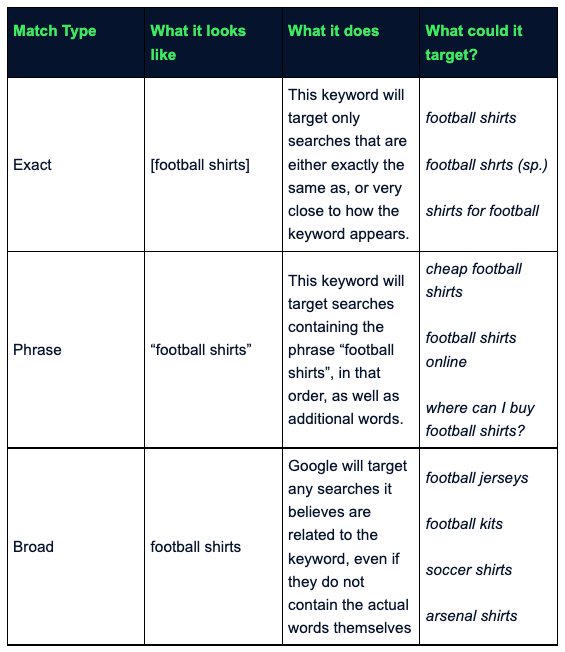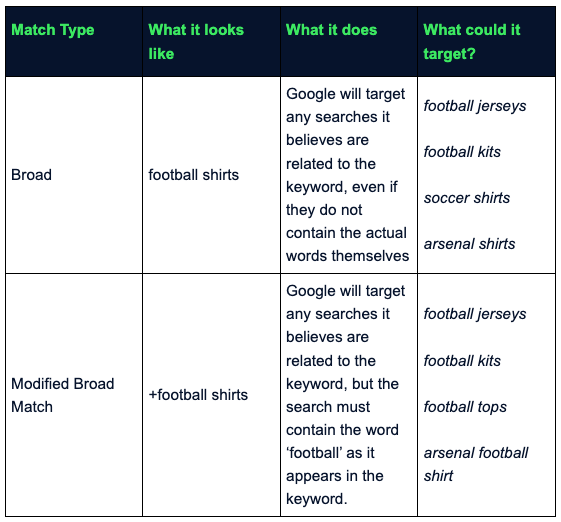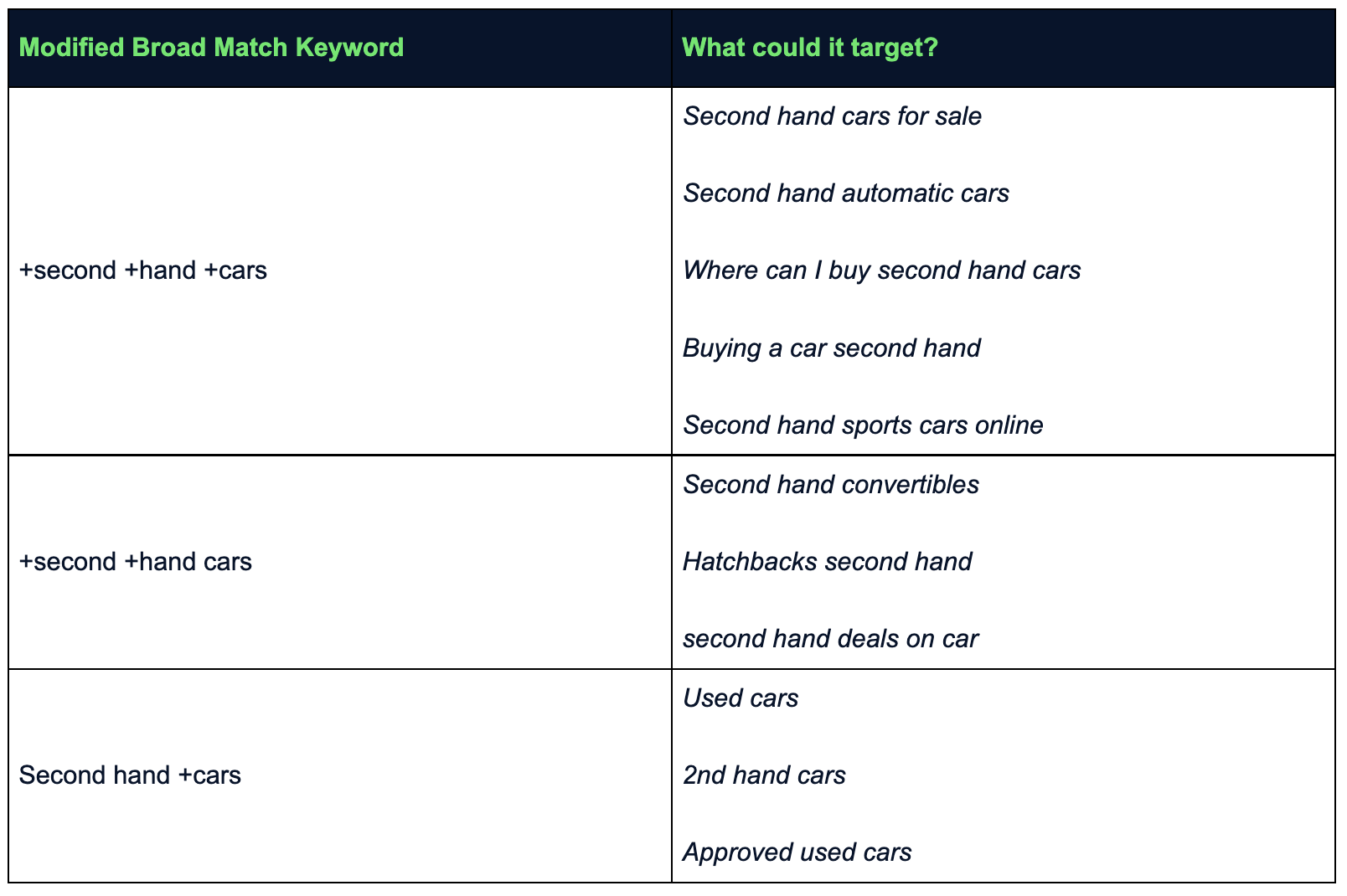Modified Broad Match Keywords - An Introduction
This article is the second in our new series of blogs on about ‘PPC Features That Every Business Should Try’.
There are three main match types that you can use for keywords in Paid Search; each brings its own benefits and, when managing PPC accounts, you will have probably used each of them at some point.
PRIMARY MATCH TYPES
Let’s remind ourselves quickly of the three main match types for keywords, how they appear, and what kind of results you can expect from each.

NOTES
Exact match will generally pick up common misspells or typos if the resulting search is close enough to the keyword.
Exact match will pick up ‘close variants’ - these are searches that are almost the same as the keyword, but not quite. This can include different permutations or plurals.
THE PROBLEM WITH BROAD MATCH

Quite clearly, broad match is where you may be drawn to if you want the maximum volume. If you’ve tried investing in broad match keywords before though, you’ll know that Google can be quite liberal with what it believes to be relevant.
You will often see search terms being targeted that have no logical connection to your keyword from your point of view; this can be quite confusing and frustrating, not to mention wasteful if you have a tight budget.
The obvious solution here is to ensure you are keeping on top of your Search Query Reports and adding any irrelevant matches as Negative Keywords. For high-volume broad match keywords, however, this can be very time consuming, and you may have to chew through a large chunk of your budget to identify these negatives in the first place.
WHAT IS MODIFIED BROAD MATCH?
Modified broad match, as the name suggests, is a broad match keyword with one key difference. It allows you to flag certain words as mandatory for targeting. While regular broad match may look at synonyms or related words to increase reach, modified broad match stops this from happening.
For example, if you want to target football shirts as a broad match but want to stop Google from veering away from ‘football’, adding a ‘+’ symbol before the word football tells Google that all search queries must contain the word ‘football’.
HOW TO USE MODIFIED BROAD MATCH
Let’s look at some broad match keywords again, but this time we’ll include Modified Broad Match:

Notice how all of the potential keywords here include the word ‘football’? That’s how Modified Broad Match works. Already you are potentially cutting out a great deal of irrelevant traffic and making your targeting more precise, yet still broader than an exact or phrase match.
You aren’t just restricted to single words for Modified Broad Match either; you can apply the “+” to any and all words in your keyword if you like.
Just a couple more examples:

You get the picture: Modified Broad Match is a great way to broaden your targeting, while ensuring certain mandatory words or phrases are included somewhere.
MODIFIED BROAD MATCH VS. PHRASE MATCH?
You might have noticed that a Modified Broad Match with a “+” in front of each word works in a very similar way to a Phrase Match keyword. The only difference between the two is that a Modified Broad Match keyword will allow Google to break or reorder the string of words, whereas a Phrase Match will keep the order more rigid.
Many advertisers choose to replace their Phrase Match keywords with these Modified Broad Match variants, but there is no established rule as to which is best. Like many choices a PPC account manager is faced with, it all depends on your own data.
THE GOLDEN RULE
Modified Broad Match is designed to give you greater control over the relevance of your search results, whilst keeping your reach as broad as possible. With this in mind, it is critical that you treat Search Query Reports with the same importance as you would with a regular broad match. There will likely be plenty of search queries you still need to avoid, even if all of your targeted words are included.

Classic negatives that work for many campaigns include the following:
Reviews
Jobs
Complaints
Free
News
Manager email
Opening hours
SUMMARY
Naturally, your default negative keywords will depend entirely on your business and its goals, but providing you check your search queries regularly and make appropriate decisions with negatives, your broad match targeting can be a great success.
Get in touch with us to discuss your next digital marketing campaign, and we'll be back in touch soon.










